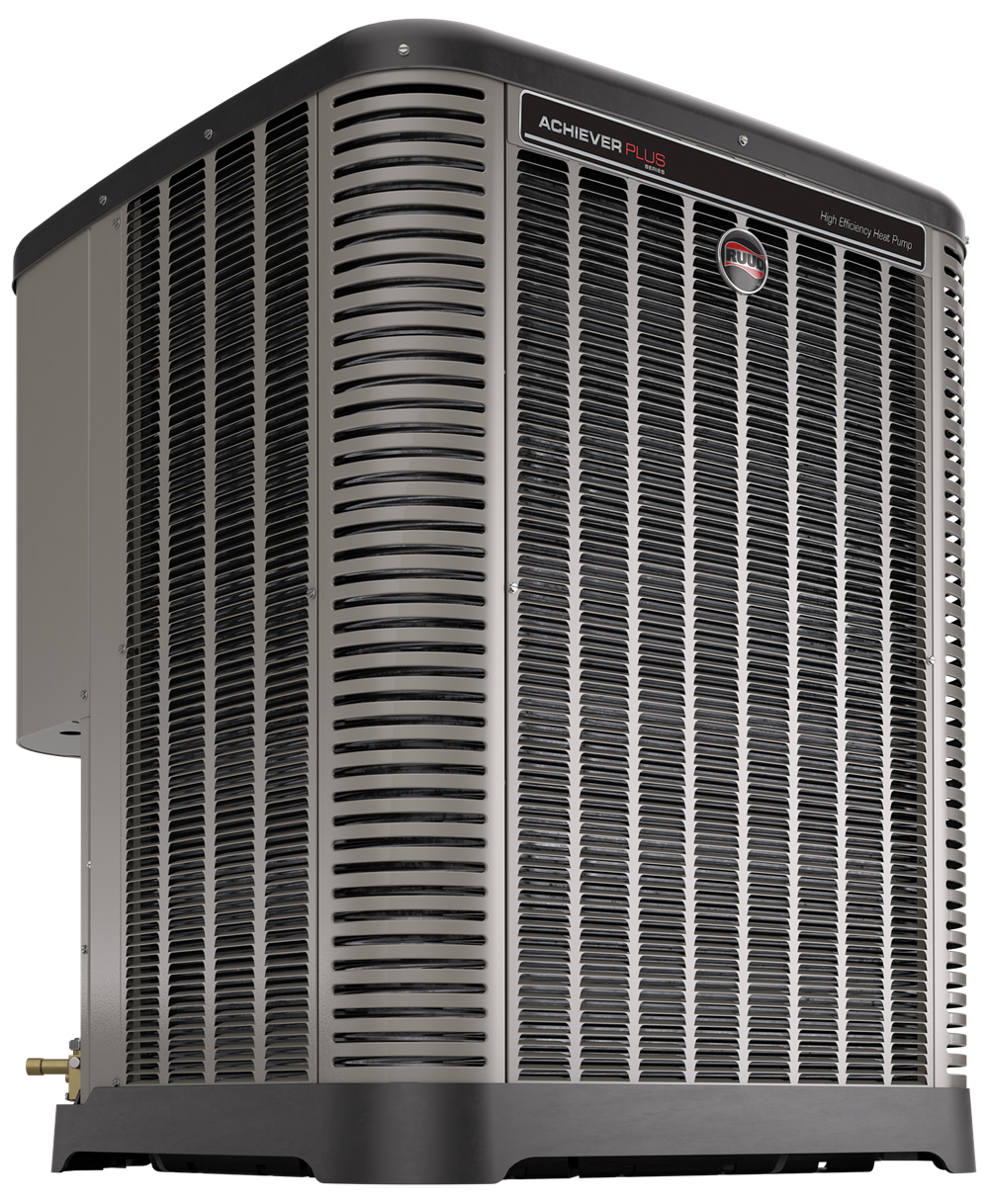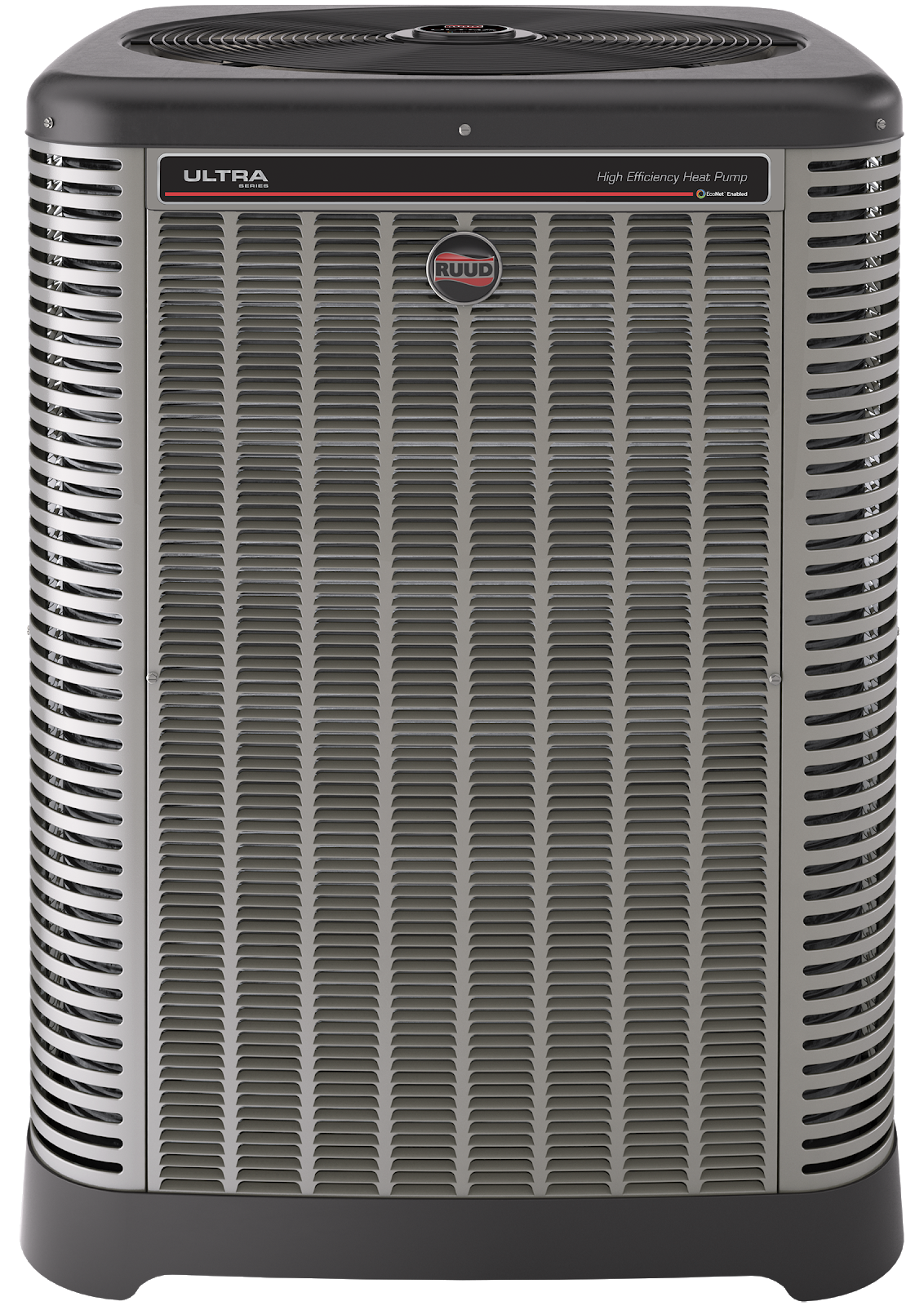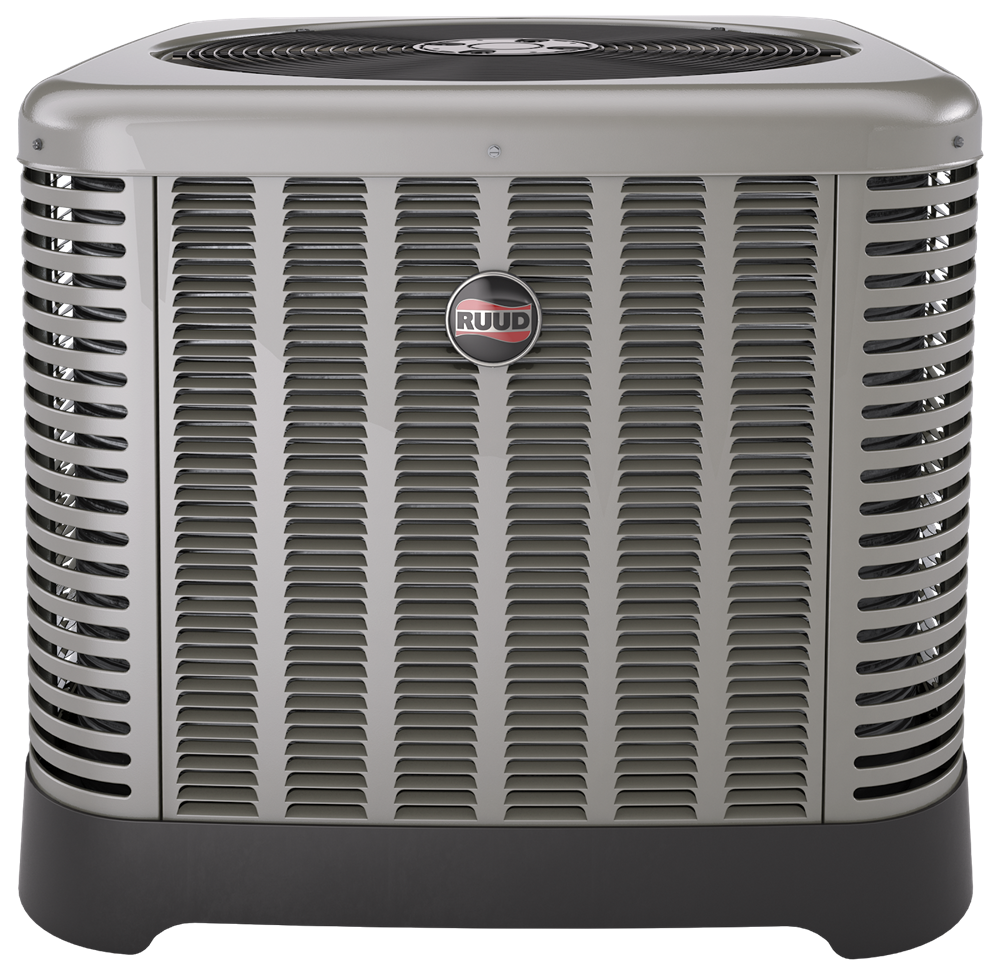
Get the most out of your new heat pump system by choosing the one that’s the right size for your home. In this article, we answer some of the most common questions people ask to determine the right heat size pump. If you don’t see the answer you’re looking for, make sure to reach out to us to get in contact with a certified Ruud Pro Partner today!
Why does heating pump size matter?
Having the right size or capacity of your heating pump system will allow it to run more efficiently, not only will that heat or cool your home faster but the right size will also reduce your utility cost.
- Too small, your heat pump will struggle to produce enough energy to heat and cool your home. A smaller unit will waste energy, money and potentially break.
- Too large, your heat pump will produce excess energy, wasting resources.
What happens if my heating pump is the wrong size?
- Higher energy cost.
- Increased risk of pump breaking.
- Increased on-and-off cycling.
- Drastic temperature differences.
- Ineffective indoor humidity control.
- Short-cycling.
- Poor air distribution.
- Reduced lifespan.
What size heat pump do I need?
To size a heat pump for any home, the HVAC industry follows a standard sizing method known as Manual J, established by the Air Conditioning Contractors of America.
Heat pump Manual J sizing:
Manual J goes room-by-room and looks at eight different factors to establish the appropriate heat pump size for your home.
What are the eight Manual J factors?
- The local climate and how many days a year you need active heating and cooling
- The home’s layout, such as square footage and shape
- The number and location of windows
- How much air infiltration occurs
- How much insulation the home has- whether it meets the region’s efficiency rating
- How many people live in the home
- How residents use the home and their temperature preferences
- Other appliances in the home that generate heat
Heat pump sizing calculator:
For every 500-600 square feet of conditioned floor area, install one ton of air conditioning capacity. And since most sizes of heat pumps are determined by BTU (or British Thermal Unit), you’ll also need to know that each ton is worth 12.000 BTU.
How to Calculate Tons & BTUs:
- Calculate the square footage of the space you want to cool.
- Divide the space's square footage by 500.
- Multiply the number (from Step 2) by 12,000. This is the number of BTU your system will need to remove to cool the space.
- Add 380 BTU for each person who works in the space all day.
- For each window in the space, add 1,000 BTU. For each kitchen, add 1,200 BTU.
Heat Pump Sizing Considerations
Once BTUs are determined, HVAC technicians can help identify the exact heat pump system to recommend based on the unique needs of your home. Below is an explanation of the importance of each factor, and how they impact recommended BTUs:
Region
Depending on the climate, the required heat pump tons to cool the area in square feet can vary.
Square Feet
BTUs needed for common residential square footage sizes can vary by region, but generally fall under this range:
House Square Footage | BTUs Needed |
1,000 – 1,200 | 21,000 |
1,500 – 1,600 | 23,000 |
2,000 | 24,000 |
2,500 | 30,000 |
Property Design & Construction
Homes and office features such as insulation, windows or building type can play a role in choosing the right heat pump size. There are many factors you needed to consider when investing into a new system.
Thankfully HVAC professionals such as Ruud Pro Partners have the experience needed to adjust heat pump needs based on these factors. Your local HVAC contractor should do a Manual-J for your house and answer any questions about your home. Make sure your HVAC contractor is knowledgeable enough to answer all your questions and concerns. If your looking for an idea of what size heat pump you might need, the following recommendations are common based on the size of your home.
What size heat pump do I need for a 1500 square foot house?
The average home in regions with the mild climate recommends a 3 ton heat pump for 1500 sq. ft homes.
What size heat pump do I need for a 2000 sq ft home?
The average home in regions with the mild climate recommends a 4 ton heat pump for 2000 sq. ft homes.
What size heat pump do I need for a 2500 square foot house?
The average home in regions with the mild climate recommends a 5 ton heat pump for 2500 sq. ft homes.

What are different heat pump features to look for?
Higher upfront costs may save you on monthly operating costs during the life of your unit. Things to look for in your next heat pump include:
- Energy Efficiency Ratings: SEER and HSPF.
- Blower Motor Type: Fixed Speed, Multi-Speed, Variable Speed.
- Compressor Type: Single Stage and Two-Stage.
Heat Pump Installation Needs & Next Steps
Based on the unique needs of your home and the region you live in, the ideal heat pump system is best determined by a nearby HVAC contractor. Receive an estimate from a dedicated HVAC contractor such as a nearby Ruud Pro Partner who can best advise on sizing your heat pump properly, they’ll recommend the best heat pump option to maximize your comfort and budget, making sure your new heat pump efficiency cools and heats your home.




